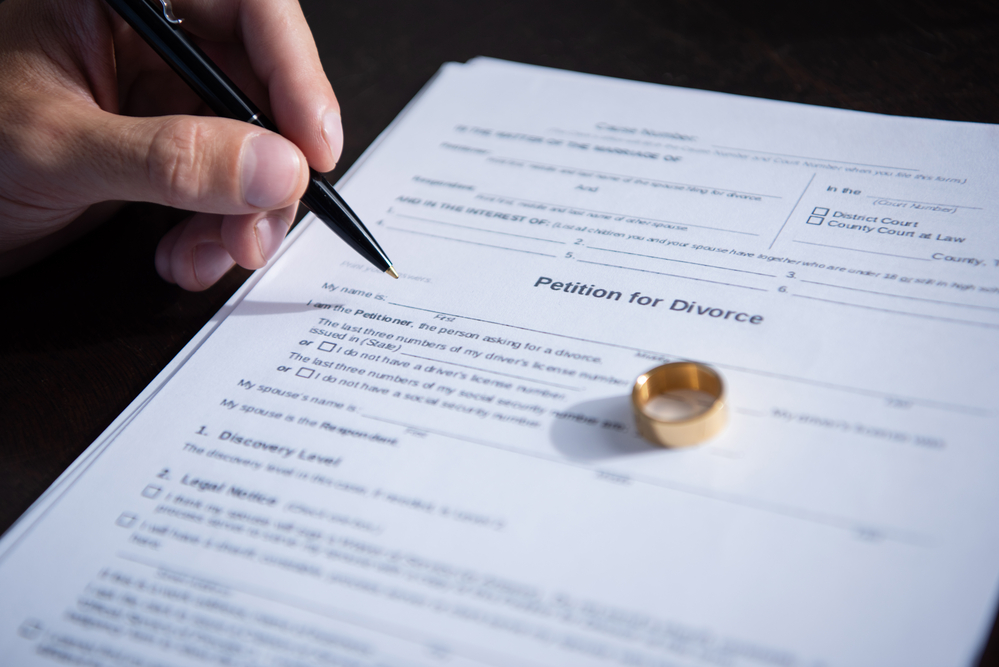 A divorce can be a long and often difficult process. While the amount of time it takes and just how stressful it is will vary from one couple to the next, it’s very rarely as simple as you think. In fact, your legal divorce can be just the beginning of the entire separation process. In reality, there are three stages to truly separating yourself from your ex, and we call these “the three divorces” that every divorcee goes through. Keep reading to learn more.
A divorce can be a long and often difficult process. While the amount of time it takes and just how stressful it is will vary from one couple to the next, it’s very rarely as simple as you think. In fact, your legal divorce can be just the beginning of the entire separation process. In reality, there are three stages to truly separating yourself from your ex, and we call these “the three divorces” that every divorcee goes through. Keep reading to learn more.
The Legal Divorce
We’ll start with the simplest and most obvious of the three divorces: the legal divorce itself. This is the divorce where lawyers, mediators, and judges are involved to legitimize the end of your marriage and put it all down on paper. When you think about divorce, this is probably the stage you’re thinking about. The legal divorce can begin either before or after a couple has separated.
For example, you might serve your spouse divorce papers while you’re still living together, then take a week or so to move out. In that particular instance, you’ll be in the process of the legal divorce before you and your spouse have separate. Other times, a couple may legally separate for some time before pursuing the legal divorce. Depending on your unique circumstances this kind of divorce can last months or even years.
The Social Divorce
The longer you’ve been with your ex, the more your social circles tend to overlap. That overlap in your friends and family is where the next type of divorce—the social divorce—takes place. The social divorce doesn’t typically begin until after you and your spouse have separated and the legal divorce is underway, but it can drag on for years.
The good news, however, is that the social divorce is largely not your job. This is an adjustment that your friends and your family have to make in accepting that you are no longer a couple. You can still have mutual friends with your ex, but your friends need to understand that you’ve separated and try to make the effort of seeing the two of you at different times, rather than as a couple like they used to.
Your families usually have an easier time working through the social divorce, as you provide the link between your spouse and your family members; however, some family members may still wish to maintain some kind of relationship with your ex if they were very close to them. Try to avoid drawing lines in the sand with these relationships, and simply ask that they respect you enough to visit with your ex and their own time.
The social divorce is usually most difficult when children are involved. Obviously, your children should not be expected to choose a side; but children often hold onto the hope that your separation will only be temporary, and that you and your ex will get back together eventually. (Other friends and family members may do this too, but it’s most common among your children.) In these cases, the process of the social divorce is more about acceptance than divvying up your social circles.
The Emotional Divorce
Though a legal divorce can be messy, the emotional divorce is usually the toughest of all three kinds of divorces. The emotional divorce is the process in which you and your ex must come to accept your separation and begin to view yourselves as separate and distinct individuals outside of your relationship. This occurs at different times and different paces for each of you, and that can often be what makes this type of divorce so incredibly difficult—because you’re working through it on completely different schedules.
In most divorces, there is someone who chooses to end the marriage and one who feels like they’ve been left. For the “leaver,” the emotional divorce can take place months or even years before the couple separates. In fact, by the time you file for a legal divorce, you’ve probably already emotionally divorced yourself from the relationship.
But if you’re the “left,” the emotional divorce won’t typically begin until the legal divorce is underway. It can be hard to accept the fact that your spouse wants to end the marriage, and you might try to fight to save it. It’s only after you accept the end of your relationship (whether that be during the legal divorce process or after it’s been finalized) that your emotional divorce can begin.
If you need professional support and guidance through your divorce, contact The Harr Law Firm today.